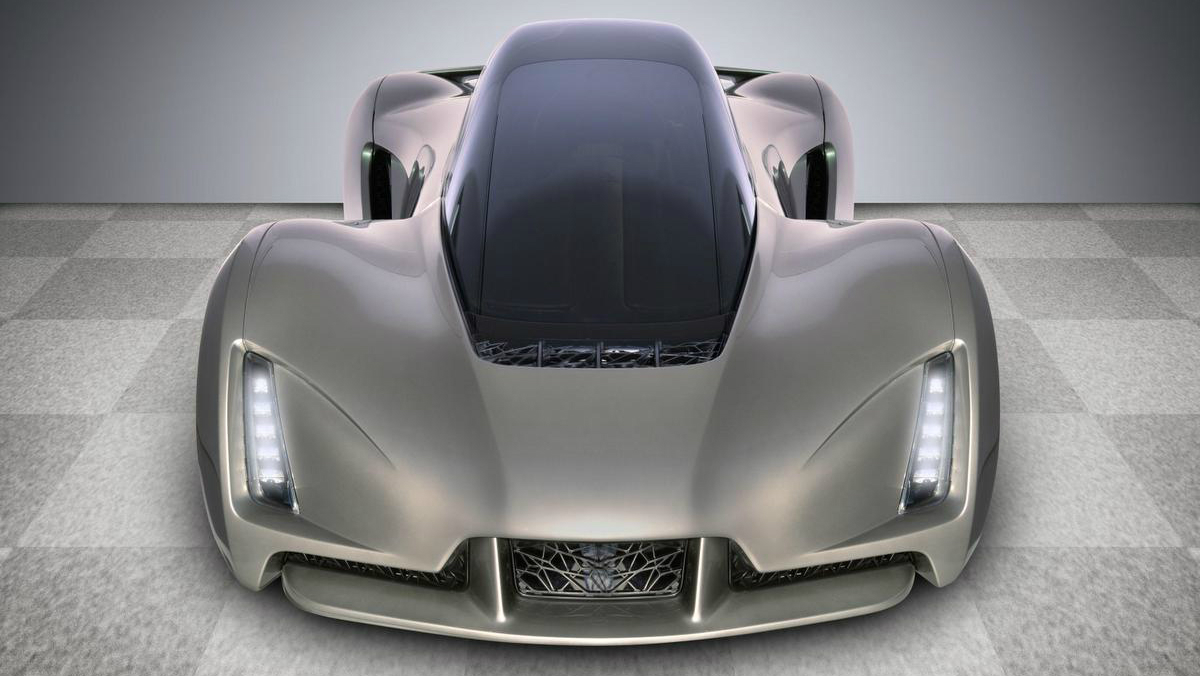

We're big fans of 3D printing at T3, so this one naturally caught our eye. Introducing the Blade, the world's first 3D printed supercar. This unique automobile was put together like a Lego set but is capable of going from 0-60mph in just two seconds.
The Blade was created by San Francisco firm Divergent Microfactories and is recognised as the world's first 3D printed supercar. Rather than coming out as a single unit, the Blade was created using a series of chassis parts held together by carbon rods.
Divergent claims that this method can reduce the weight of the chassis by as much as 90 per cent compared to conventional cars that are pumped out in a factory. Although the fact that its carbon fiber and not steel or aluminium probably has a lot to do with it.
In all, the vehicle weighs just 1,400 pounds, but features a 700HP engine capable of running on both CNG and gas. At its best, the Blade can go from 0-60mph in just two seconds – so it can certainly hold its own in a short drag race.
The firm says its approach incorporates 3D printing to dramatically reduce the pollution, materials and capital costs associated with building automobiles and other structures.
“Society has made great strides in its awareness and adoption of cleaner and greener cars,” said Divergent Microfactories CEO Kevin Czinger. “The problem is that while these cars do now exist, the actual manufacturing of them is anything but environmentally friendly.”
“At Divergent Microfactories, we've found a way to make automobiles that holds the promise of radically reducing the resource use and pollution generated by manufacturing.”
Sign up to the T3 newsletter for smarter living straight to your inbox
Get all the latest news, reviews, deals and buying guides on gorgeous tech, home and active products from the T3 experts
Divergent Microfactories plans to sell a limited number of high-performance vehicles that will be manufactured in its own microfactory. The goal is to encourage others to set up microfactories to 3D print their own low-cost vehicles while keeping the process as green as can be.
If you want to know more about how the Blade was created, then check out the video below.
Nathan George is a freelance journalist who has contributed to T3.com in the fields of gaming, social media, streaming services, autonomous vehicles, phones, virtual reality headsets, wireless speakers and future tech. He studied journalism at the University of the West of England and is a holder of the Bronze and Silver The Duke of Edinburgh Award.

